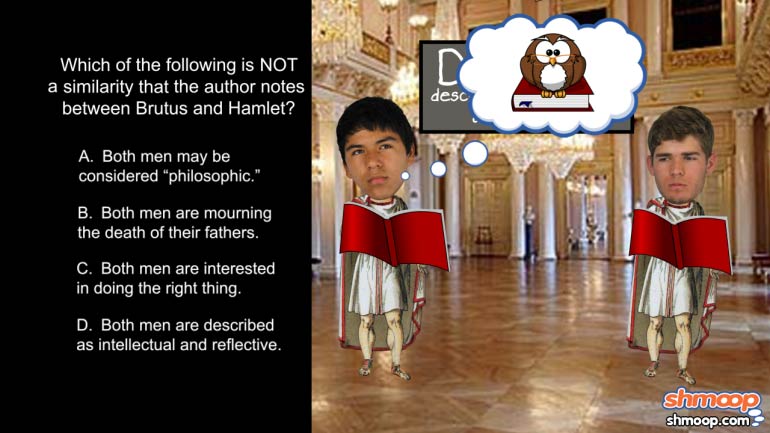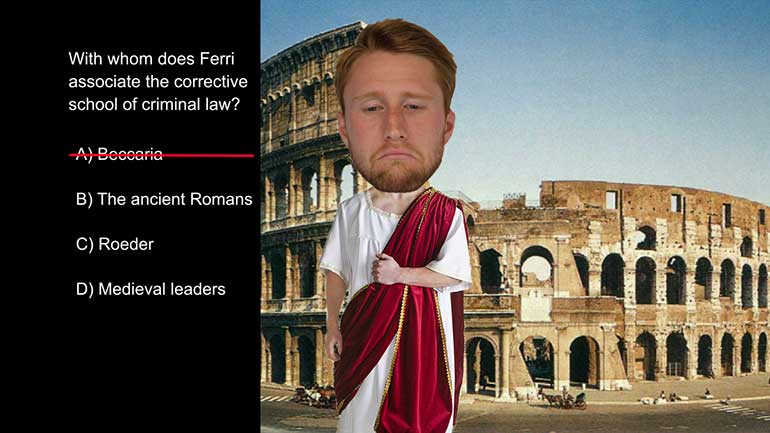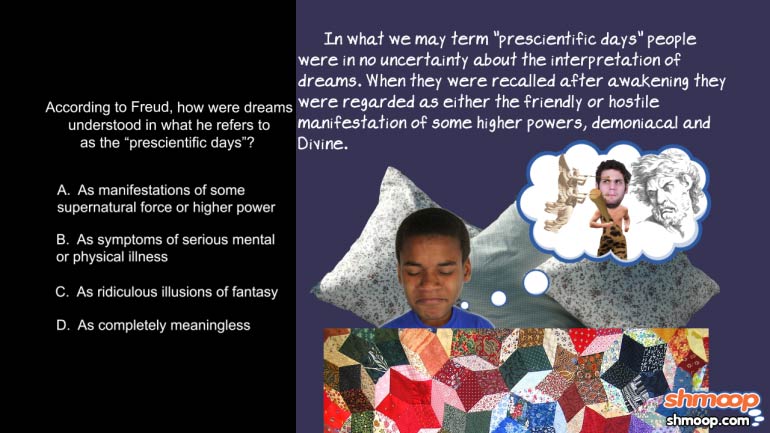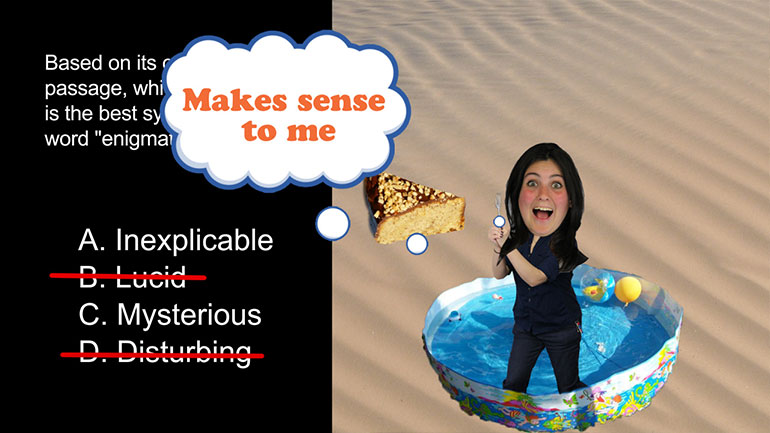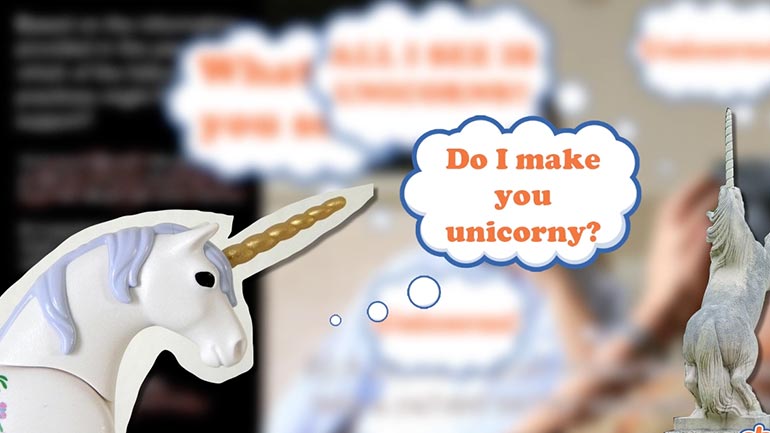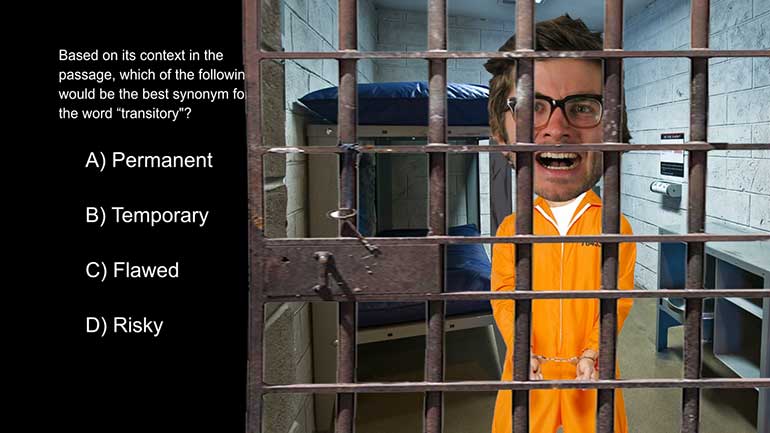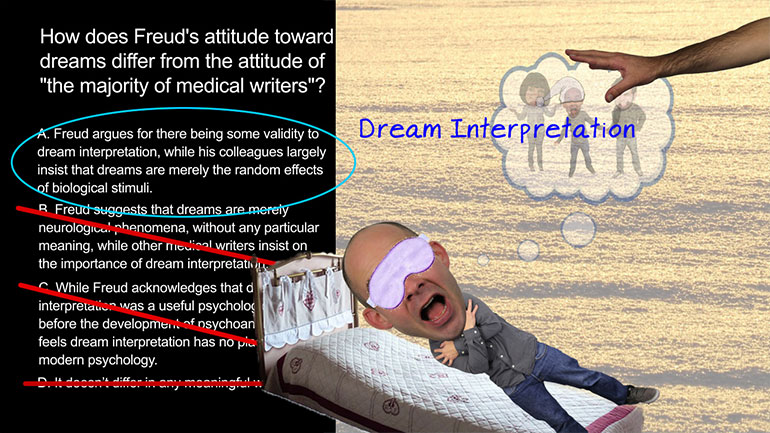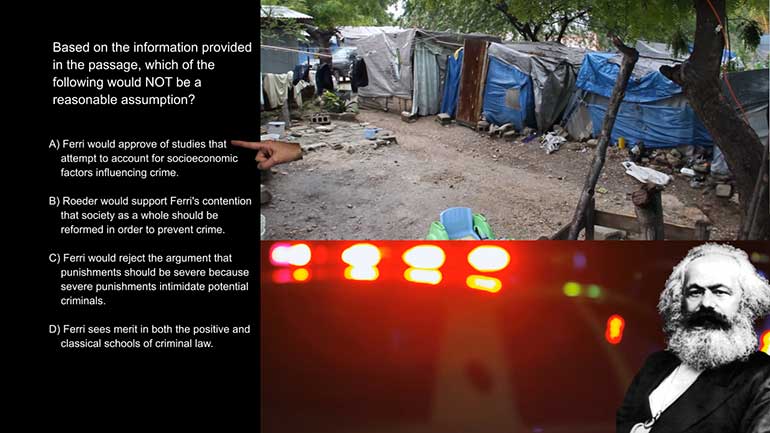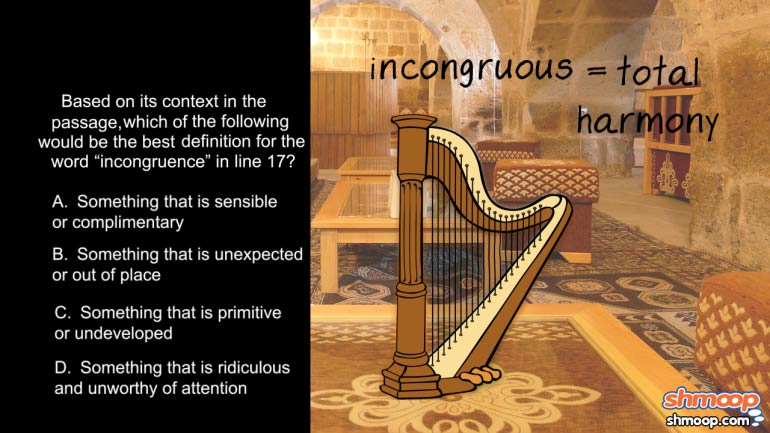ShmoopTube
Where Monty Python meets your 10th grade teacher.
Search Thousands of Shmoop Videos
Comparative Relationships (Compare and Contrast) Videos 9 videos
ACT Reading 1.6 Humanities Passage. Which of the following is not a similarity that the author notes between Brutus and Hamlet?
ACT Reading 2.1 Natural Science Passage. According to the passage, what is the relationship between ATSDR and the CDC?
ACT Reading 2.7 Social Science Passage. With whom does Ferri associate the corrective school of criminal law?
ACT Reading 1.1 Social Science Passage 276 Views
Share It!
Description:
ACT Reading: Social Science Passage Drill 1, Problem 1. According to Freud, how were dreams understood in what he refers to as the "prescientific days"?
- Foreign Language / Arabic Subtitled
- Foreign Language / Chinese Subtitled
- Foreign Language / Korean Subtitled
- Foreign Language / Spanish Subtitled
- Reading / Identify and Interpret Details
- Product Type / ACT Reading
- English I EOC Assessment / Inferences and Conclusions
- ACT Reading / Comparative Relationships (Compare and Contrast)
Transcript
- 00:04
Here's your Shmoop du jour, brought to you by pre-scientific days. Sadly, a time of high
- 00:09
unemployment for scientists.
- 00:41
According to Freud, how were dreams understood in what he refers to as the "prescientific days"?
- 00:53
To answer this one, all we have to do is go back to the first few lines of the passage. Check it out:
- 00:58
So what Freud is explicitly saying is that in "prescientific" days or the "days
Full Transcript
- 01:04
before science," societies tended to explain dreams as divine or supernatural manifestations.
- 01:09
In other words, they thought dreams were messages from the gods. Now, all we have to do... is
- 01:14
isolate the answer that agrees with Freud.
- 01:17
If people thought that dreams were coming from the honest-to-god gods, then it's unlikely
- 01:21
that they'd think they were meaningless.
- 01:24
Answer (D) is incorrect.
- 01:25
If a person thinks their god is communicating with him or her, it's probably best not
- 01:29
to say its divine messages are "ridiculous," or absurd. There might be consequences.
- 01:34
(C) is off the list.
- 01:37
Freud does say that ancient people believed that sometimes dreams came from "demonical,"
- 01:42
or evil forces. So they weren't necessarily always good things.
- 01:46
He doesn't say that people from pre-scientific times believed that dreams themselves were
- 01:50
symptoms of illness, though. Therefore, we can eliminate answer (B).
- 01:54
Choice (A) correctly restates Freud's point about the take on dreams before the reign
- 01:59
of science, making it the right answer.
- 02:01
Wonder if Freud was ever... California Dreamin' on such a winter's day...
Related Videos
ACT Reading Prose Fiction Drill 1, Problem 1. Which of the following best describes the overall purpose of this passage?
ACT Reading 1.5 Social Science Passage. Based on its context in the passage, which of the following would be the best definition for the word...
ACT Reading: Humanities Passage Drill 1, Problem 1. Which of the following best describes the main purpose of this passage?
ACT Reading: Natural Science Passage Drill 1, Problem 1. Which of the following best describes the overall purpose of this passage?
ACT Reading: Humanities Passage Drill 1, Problem 10. Which of the following is the best explanation of the term "tragedy of thought" in line 58?
